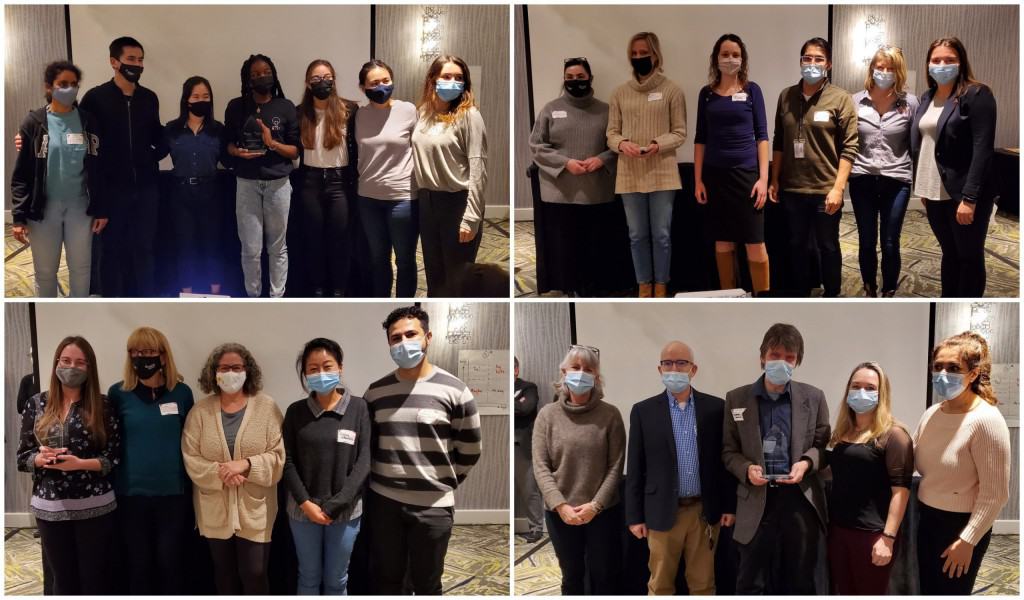“Innovation is a team sport and we need partners.”
Dr. Darryl Knight, President, Providence Research
Finding a new and innovative approach to pain management was the genesis for our first-ever skunkworks event.
In partnership with Providence Research and a diverse group of clinicians, researchers, academics, industry partners, students, patients, and interested laypeople (including several Foundation staffers), we set out to challenge conventional ideas about chronic pain and how to alleviate it.
Why pain? Because pain is endemic, it’s notoriously challenging to treat, and opioids are commonly prescribed to alleviate it.
- 1 in 5 Canadians has chronic pain.
- 20% of British Columbians has persistent or recurrent pain.
- Canada is the second highest opioid consumer in the world (after the US).
- In 2018, almost 1 in 8 people Canadians were prescribed opioids for pain relief.
Skunkworks? Hackathon?
The term Skunk Works dates back to the 1940s. It was an alias for a top-secret engineering lab at the Lockheed Aircraft Corporation. Today, it’s used to describe projects that bring together diverse, loosely-structured groups to solve problems with “outside the box” solutions in very short timeframes.
Teams were drawn to ensure participants from different backgrounds would be working together. Then, with the guidance of expert mentors, they unleashed their creativity and brought their disruptive ideas to life.
It was an overwhelming success. Award-winning ideas included:
- An app to support patients living with pain in rural and remote communities in BC.
- An app to help tackle language barriers that can prevent patients from accurately describing their pain.
- A tool for youth aged 18-24 living with chronic pain who have aged out of pediatric care.
- An educational video to fight stigma and increase awareness of inhalable diacetylmorphine (medical grade heroin) as a safer choice for people who use opioids.
In their own words: what our partners have to say
Based on the quality of the ideas, the passionate engagement of the participants, and the dynamic new partnerships we seeded, it’s a safe bet that Hacking Pain is just the beginning. But don’t take our word for it: here’s what some of the folks who were there had to say.
This event really showcased how Providence is creating more infrastructure, more resources, and more support around innovation by facilitating meaningful mentorship and partnering opportunities across the life sciences sector.
Ivone Martins, Executive Director, Providence Health Innovation, Research + Engagement (PHIRE) participant
I am so impressed by what Providence is doing to innovate. It’s not about courting large companies with deep pockets. We’re looking to partner with anyone who has big ideas, the persistence to push forward, and the desire to change the world for the better.
Allan Noordvyk, Executive Director of Health Informatics, PHC, event judge.
There was so much good energy in the room and some really exciting ideas. I was impressed by how open the teams were to hearing my experiences as a patient.
Miranda Tymoschuk, patient partner
Too often, people visit their doctor, they get a few minutes to talk about their problem, and that becomes the basis for their treatment. It doesn’t go deep enough to understand the root of the problem or to suggest different strategies. Opportunities like Skunkworks bring a lot of different people together – each with their own experience in their own sector – to brainstorm and create effective new solutions.
Greg Christie, Chief Technology Officer, Digital Health Circle, event mentor
Not only do partnerships amplify our individual strengths, they inspire us to aim higher and to accomplish more. This event was a prime example of how partnerships can transform the participants, the partners, and the wider community. St. Paul’s Foundation is proud to facilitate and participate in these life-changing opportunities.
Dick Vollet, President and CEO, St. Paul’s Foundation
Read more about the Skunkworks process and the winning teams here.
By Kris Wallace
